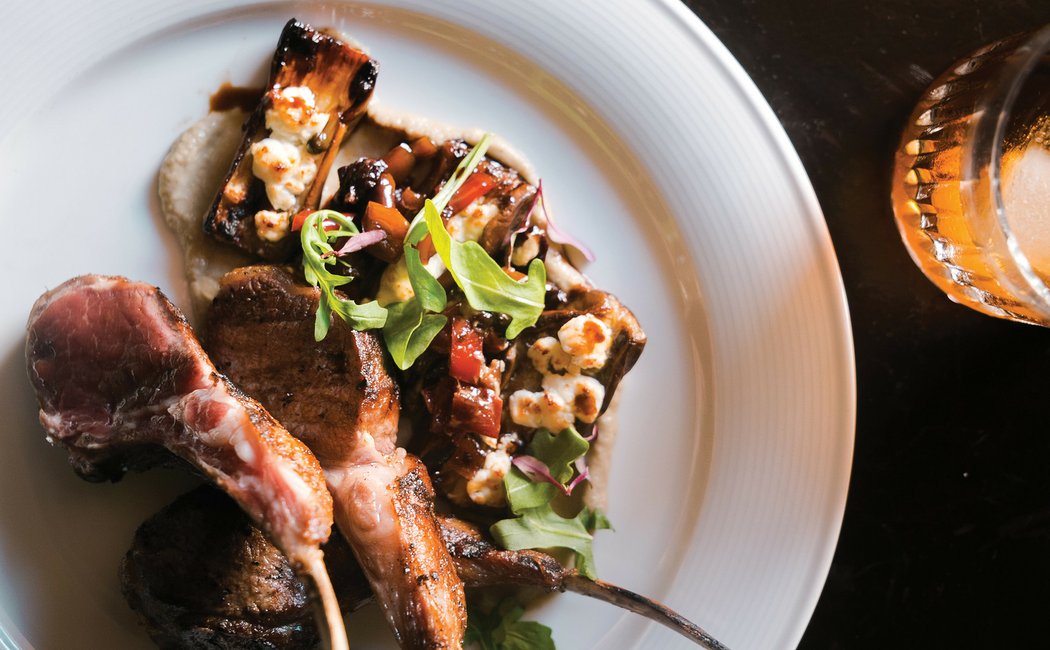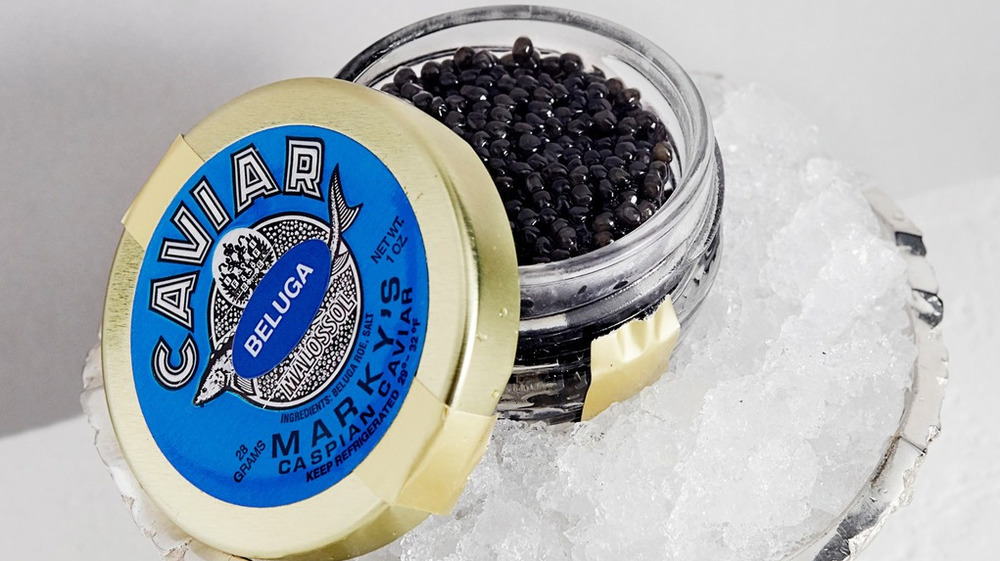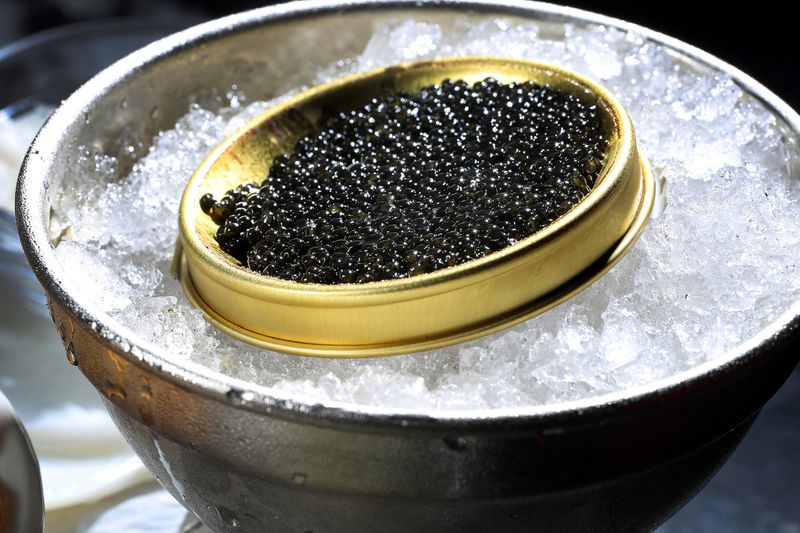The history and cultural significance of sturgeon, the fish species used to make caviar
Few foods embody luxury and opulence quite like caviar. For centuries, the salted roe of sturgeon has been a delicacy sought after by royalty and high society alike. Today, gourmet aficionados continue to regard caviar as one of life’s greatest culinary pleasures - but what exactly is this special ingredient, and why does it have such an allure? At Marky's Caviar & Gourmet Food, we believe that understanding the unique history of this fish species helps us appreciate the cultural significances surrounding its consumption. In this blog post, we will dive deep into the world of sturgeon to uncover some interesting facts about our favorite seafood indulgence! So join us as we go on a historic journey through luxurious tastes and prized ingredients – let’s discover how sturgeons became the source for exquisite caviar.
History of sturgeon, the fish species used to make caviar

Sturgeon. The name is synonymous with luxury and indulgence. But did you know that these prized fish have been swimming the waters of our world for over 245 million years? That's right, they are prehistoric creatures that have navigated the rivers and seas throughout time. But it’s the beluga, osetra, sevruga, and sterlet varieties that have gained worldwide fame for their eggs- which we all know as caviar. Early caviar harvesting -eat raw, salted preservative action- served the masses as a cheap source of food in Russia and Europe. But it wasn’t until the 19th century that the delicacy made its grand debut on the tables of royals and aristocrats alike, cementing its place as one of the most coveted foods in the world. Though sturgeon populations have been dwindling over recent years, thankfully, modern efforts at conservation have allowed us to still enjoy caviar responsibly.
Cultural importance and prevalence in various cuisines around the world
Food is more than just fuel for our bodies. It can also be a window into a culture's history, beliefs, and values. Across the globe, cuisine is woven into the fabric of society and can be a source of both national pride and individual identity. From the spicy curries of India to the comfort foods of the American South, each cuisine has a unique story to tell. By exploring the dishes of different cultures, we can broaden our understanding of the world and appreciate the diversity of human experience. Food truly is a universal language, and one that brings people together in celebration and nourishment.
How it has been harvested and farmed over the years

Agriculture has a long and fascinating history that has impacted human society profoundly. Throughout the years, the methods of harvesting and farming have evolved significantly, from the traditional practices of subsistence farming to the industrialization of agriculture in modern times. It's remarkable to consider how far we've come in terms of food production, but it's also important to reflect on the changes that have taken place and the impact they've had on our environment and health. As a food specialist, I'm intrigued by the innovations that have emerged in agriculture over the years and how they've helped shape our diets and culinary practices.
Different types of sturgeon and their unique flavor profiles
The world of sturgeon is vast and varied, with each type offering its own distinct flavor and texture. The beluga sturgeon, for example, is known for its buttery taste and melts in your mouth. Alternatively, the osetra sturgeon boasts a nutty flavor with a slightly firm texture. The sevruga sturgeon has a slightly salty taste with a grayish-black color and tends to be the smallest of the three main types. These exotic fish can be enjoyed raw or smoked, with each preparation method bringing out its unique qualities. Whether you're a seafood connoisseur or just looking to try something new, exploring the world of sturgeon is sure to tantalize your taste buds.
How Marky’s Caviar is sustainably sourced and ethically produced
Marky's Caviar is a name synonymous with luxury, but what sets this brand apart is its commitment to sustainability and ethics. The team at Marky's is dedicated to sourcing caviar through environmentally responsible methods that ensure the longevity of the sturgeon population. They work closely with farms that prioritize the well-being of their fish and are committed to ethical production methods. This means that not only can you indulge in the rich, decadent flavor of Marky's Caviar, but you can do so with the knowledge that you are supporting a company that values the health of our planet and its inhabitants.
How sturgeon use has changed over time, along with sustainable caviar production methods
The history of sturgeon use is one that spans centuries, dating back to the time of the ancient Greeks and Romans. Over time, the use of sturgeon has evolved from simply being a source of meat and oil, to being primarily sought after for its prized caviar. Unfortunately, as demand for caviar grew, so did overfishing and illegal poaching, causing sturgeon populations to dramatically decline. However, in more recent years, sustainable caviar production methods have been implemented to help protect and replenish sturgeon populations. These methods include carefully monitored fishing quotas, responsible aquaculture practices, and non-invasive techniques for extracting caviar. As a food specialist, it's encouraging to see these efforts being made to ensure that future generations can continue to enjoy this coveted delicacy without causing harm to the environment or endangering the species.
Caviar has always been an iconic dish, as it carries with it a rich history, cultural importance, and delicious flavor. In recent years, due to overfishing and unregulated wild caviar harvest, sturgeon production and consumption have both come under increased scrutiny. While the future of sturgeon remains uncertain, sustainability efforts like those of Marky’s Caviar are helping to ensure that they continue to be a prized culinary ingredient. At Marky's Caviar and Gourmet Food, sustainably sourced caviar is their top priority. All of their products are harvested in line with strict ethical standards and guidelines, giving them the protection they need so that we can all enjoy this luxurious food in the years to come. Along with sustainable practices, Marky's Caviar also showcases the unique character and flavor profiles of every type of sturgeon through their carefully crafted recipes. So when you’re looking for a delicious treat for your next special occasion or dinner party, consider adding some responsibly produced caviar from Marky's Caviar and Gourmet Food into the mix!






